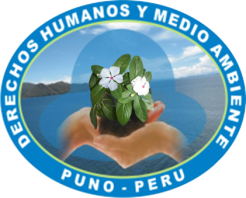COVID-19 in Peru
This is an abbreviated English translation of a statement on the effect of the pandemic on rural communities from the Civil Association of Human Rights and the Environment (DHUMA), in Puno, Peru. Sr. Patricia Ryan, MM, is president of DHUMA.
This is an abbreviated English translation of a statement on the effect of the pandemic on rural communities from the Civil Association of Human Rights and the Environment (DHUMA), in Puno, Peru. Sr. Patricia Ryan, MM, is president of DHUMA. The following article was published in the May-June 2020 issue of NewsNotes.
The global COVID-19 pandemic has arrived in Peru, a nation marred by the historic evils of exclusion, discrimination, and racism, still unresolved after many centuries. Like in the rest of the world, the most vulnerable populations in Peru are the sectors most impacted and most disregarded, such as campesino (rural indigenous farming) communities. Life in rural areas differs greatly from that in cities, but the authorities who proclaim broad, uniform decisions and policies ignore this…They fail to consider the traditional wisdom of indigenous communities in facing the pandemic or in ensuring the harvest, upon which all life relies.
Since social isolation was mandated in all of Peru, rural communities, like all Peruvians, have complied with the government order, closing off all means of interaction, such as roads and highways connecting communities, in the fear that the virus would arrive in their homes and wreak havoc for their families and for others. This lockdown only allows for one family member to leave the home to buy food, medicine, and other urgent needs. Agricultural and livestock work cannot be done by just one person: it requires the participation of the whole family. Vehicles must transport farmers and carry equipment to bring in the harvest and deliver a given percentage for sale in the cities. The daily life of farming communities is dictated by the rhythms of the laws of nature – of rain, of hail, of wind, of frosts and other natural phenomena…
The earth will not wait for the end of this quarantine. The sale of the harvest, its consumption, and the collection of seeds for the next season is at risk. If campesinos are unable to produce and sell their products now, they will be unable to do so for the rest of the year.
Various ministers have warned that the coming weeks will be the most critical. The government has announced the need to extend quarantine until May 10, leaving open the possibility of further extensions, possibly through June. One worries how much the general public can stand – particularly those living in poverty and extreme poverty. The virus is not the only enemy they must escape; they must also avoid hunger.
In the cities, a large portion of the population works in the informal sector for subsistence-level income and directly depends on functioning markets and open public spaces. Under quarantine, their work has been halted…These families, the majority of whom come from rural areas, migrated to the cities to pursue this informal labor. With the lockdown order, many have no choice but to leave, resulting in a mass exodus of displaced families returning on foot to their rural communities. This mass mobilization demonstrates the suffering of this most deprived and ignored population.
As food security threatens the survival of the majority who make up the lower economic strata, the demand for an economic subsidy to cover their needs has not been met by authorities.
In addition, the Peruvian health system finds itself at a tipping point. In cities with the most confirmed cases of infection, medical facilities are on the brink of collapse. The infrastructure of hospitals and clinics is insufficient and medical personnel are unprotected and unprepared to receive a massive influx of infected patients with the efficient help and attention they need. There is also a lack of testing, not only in rural areas but in the entire Puno region.
It is worth noting that private extractive industry remains outside the confines of the lockdown, as the work of mining corporations is considered an “indispensable activity” that cannot be suspended. Mining companies have stated that they are taking measures to ensure the safety of their workers, but in recent days the Ministry of Health has reported cases of miners infected with COVID-19, indicating danger not only for workers but for their families and communities as well. Extractive industry is one of the most environmentally destructive sectors, causing damage to the air and, most notably, water. The indifference of those in power is a slap in the face to the vast majority of ordinary Peruvians.
Now more than ever, the words of the Holy Father in his encyclical Laudato Si’ ring true, when he declares, “Today… we have to realize that a true ecological approach always becomes a social approach; it must integrate questions of justice in debates on the environment, so as to hear both the cry of the earth and the cry of the poor.” (Laudato Si’, 49).
Read the original statement in Spanish at https://bit.ly/dhumapuno

